Marina Sena – CARNAVAL Lyrics
[Letra de “CARNAVAL”]
[Intro]
Continua o desfile garboso, sob os entusiásticos aplausos da música
[Verso]
Hoje, ‘cê pode me esquecer
É carnaval no Brasil
Sou eu que mando na porra da vibe
Só vou te ligar quando chegar abril
[Pré-Refrão]
Mas se eu te encontro no fogo, eu sou sua
É que eu não aguento sua cara de puto
Mas se eu te encontro no fogo, eu sou sua
É que eu não aguento sua cara de puto
[Refrão]
Quer tapa? Toma tapa
Quer tapa? Toma tapa
Quer tapa? Toma tapa, toma tapa, toma
[Verso]
Hoje, ‘cê pode me esquecer
É carnaval no Brasil
Sou eu quе mando na porra da vibe
Só vou te ligar quando chegar abril
Mas sе eu te encontro no fogo, eu sou sua
É que eu não aguento sua cara de puto
Mas se eu te encontro no fogo, eu sou sua
É que eu não aguento sua cara de puto[Refrão]
Quer tapa? Toma tapa
Quer tapa? Toma tapa
Quer tapa? Toma tapa, toma tapa, toma
Quer tapa? Toma tapa
Quer tapa? Toma tapa
Quer tapa? Toma tapa, toma tapa, toma
Marina Sena – “CARNAVAL”
Song Details
- Title: CARNAVAL
- Artist: Marina Sena
- Genre: Brazilian Pop, MPB, Funk, Carnival Music
- Release Year: 2023
- Language: Portuguese
- Themes: Freedom, Partying, Carnival, Temporary Love, Rebellion
- Mood: Playful, Rebellious, High-Energy
In-Depth Lyric Analysis
Intro
- “Continua o desfile garboso, sob os entusiásticos aplausos da música”
- This phrase mimics the formal announcements of samba school parades during Rio de Janeiro’s Carnival.
- It sets the stage for the song as a grand celebration, referencing the joyous chaos of Carnival.
Verse 1
- “Hoje, ‘cê pode me esquecer”
- The narrator declares detachment, suggesting that during Carnival, emotions and responsibilities are put on hold.
- “É carnaval no Brasil”
- Carnival is synonymous with excess, freedom, and indulgence.
- The lyric implies that during this time, the usual rules of relationships and life don’t apply.
- “Sou eu que mando na porra da vibe”
- A bold assertion of control—the narrator is not just participating in the party but dictating the energy.
- The informal and explicit tone enhances the sense of rebellion and self-confidence.
- “Só vou te ligar quando chegar abril”
- This suggests that any emotional connection is on hold until after Carnival ends.
- It reinforces the temporary nature of Carnival relationships, which are often passionate but fleeting.
Pre-Chorus
- “Mas se eu te encontro no fogo, eu sou sua”
- “Fogo” (fire) represents passion, desire, and uncontrollable attraction.
- Despite the declaration of detachment, the narrator admits that if they meet again in the heat of the moment, they’ll give in.
- “É que eu não aguento sua cara de puto”
- The word “puto” in Brazilian Portuguese can mean angry, annoyed, or even cocky/arrogant.
- The narrator acknowledges that despite trying to ignore or distance themselves, they can’t resist the other person’s attitude or presence.
Chorus
- “Quer tapa? Toma tapa”
- This is the most striking and provocative line in the song.
- “Tapa” means slap, but in this context, it can symbolize playful aggression, sexual dominance, or even metaphorical payback.
- The repetitive structure makes it feel like a chant, reinforcing a sense of provocation and intensity.
Verse 2 (Repetition of Verse 1)
- The repetition emphasizes the carefree, cyclical nature of Carnival—each day may feel like a new wild experience, but the energy remains the same.
Themes and Symbolism
- Carnival as Liberation
- Carnival in Brazil is a period of intense celebration, where societal rules are temporarily suspended.
- The song embodies this spirit, highlighting sexual freedom, emotional detachment, and power dynamics.
- Love & Desire vs. Emotional Distance
- The narrator oscillates between wanting detachment and succumbing to passion, reflecting the temporary but powerful emotions that arise during Carnival.
- Power & Playfulness
- Lines like “Sou eu que mando na porra da vibe” and “Quer tapa? Toma tapa” suggest a power dynamic where the narrator controls the game.
- The use of aggressive, commanding language aligns with the theme of Carnival as a time of excess and reversed roles.
- Provocation & Rebellion
- The explicit and defiant tone challenges traditional romantic expectations, reinforcing independence and personal agency.
FAQs (Frequently Asked Questions)
1. What does “Quer tapa? Toma tapa” mean?
- Literally, it means “Do you want a slap? Take a slap.”
- Metaphorically, it represents power play, provocation, and intensity in attraction.
- It could be interpreted as a playful challenge or dominance in a romantic/sexual context.
2. Why does the song mention April?
- Carnival in Brazil typically ends in late February or early March.
- The line “Só vou te ligar quando chegar abril” emphasizes that after the festivities, reality and normal life return.
- It reinforces the fleeting nature of Carnival relationships.
3. What does “É que eu não aguento sua cara de puto” mean?
- It loosely translates to “I can’t stand your pissed-off face” or “I can’t resist your cocky attitude”.
- It implies a mix of attraction and frustration toward the other person.
4. What is the overall meaning of the song?
- The song is an anthem of Carnival freedom, where emotions and responsibilities are put on hold for the sake of enjoyment.
- It celebrates independence, playful rebellion, and fleeting but intense passion.
5. Is “CARNAVAL” a feminist song?
- In some ways, yes. The narrator asserts control over their own pleasure and choices, rejecting traditional romantic expectations.
- The song challenges the idea that women should always be emotionally attached, instead embracing a carefree, dominant role.
Conclusion
“CARNAVAL” by Marina Sena is a provocative, rebellious, and intoxicating anthem of freedom and indulgence. Through its playful yet aggressive lyrics, the song captures the raw, no-strings-attached energy of Brazilian Carnival.
By mixing sensuality, defiance, and humor, the track delivers a modern feminist take on romance, prioritizing pleasure over attachment. Its repetitive structure and hypnotic rhythm make it a perfect Carnival party anthem, embodying the spirit of temporary passion, chaotic joy, and unapologetic self-expression.

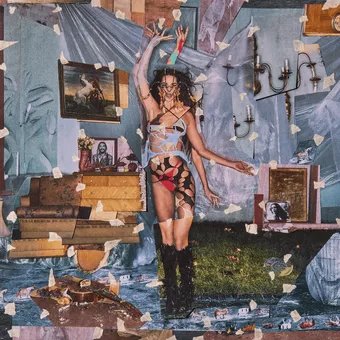
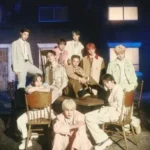

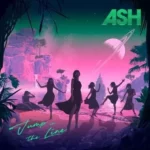

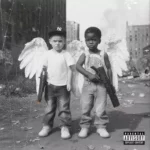


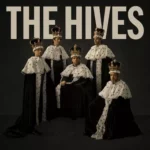







Leave a Reply